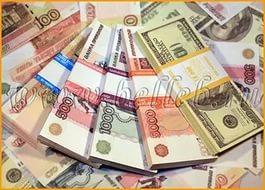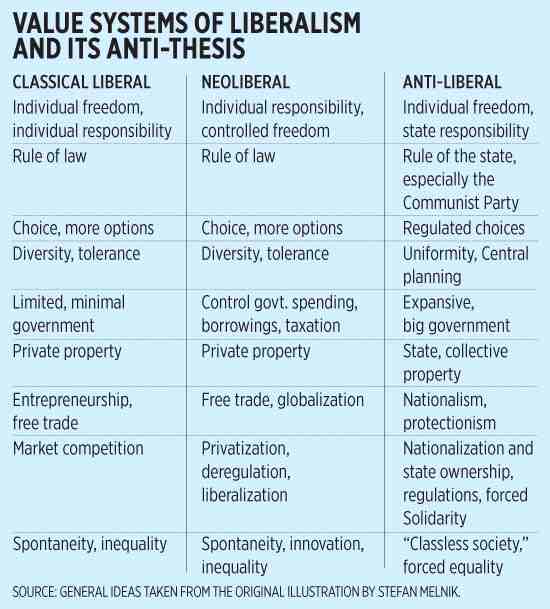The Views And Components Of Classical Liberalism

One of the more compelling debates in American intellectual circles concerns classical liberalism vs modern liberalism.
Log in to Daily Kos
In American parlance, the word liberal is used reflexively, often without much deep thought about its origin. It usually refers to individuals associated with the contemporary left and loosely connected to the Democratic Party. However, liberal did not always have that connotation in American politics.

Classical Liberalism vs. Modern Liberalism Originally, liberalism was associated with a political philosophy of governance that protected individual rights, called for checks on government, encouraged economic freedom, and was centered around individualism. In the present, we see liberalism generally associated with the modern-day political Left which is more focused on using the state to proactively promote egalitarianism and purge society of perceived blights such as racism, oppression, and patriarchal institutions.
What is Modern Liberalism
The proactive role for the state to modify behavior would seem foreign to the liberals of yore, who generally believed in a restrained state. What Changed Some historians such as the paleoconservative scholar Paul Gottfried make the case that old school liberalism transitioned into a more progressive statism centered on social engineering and behavioral control starting in the s.
In his book, After LiberalismGottfried documents how the restrained liberalism of the 19th century gradually vanished, to be later replaced by its modern-day successor.

From Laissez-Faire Capitalism to Welfare Capitalism Welfare capitalism was a reasonable compromise for those skeptical of both the market and totalitarian economic systems such as Communism. This contemporary political economy generally features a system of progressive taxation, national wage standards, state-run pension systems, and welfare programs for the poor. On the behavioral front, liberal states in the past century frequently turned to anti-discrimination laws and administrative edicts to purge society of undesirable behavior such as racism, sexism, and homophobia. Top-down state activism was justified under the banner of promoting social justice. How Progressivism Grew Source progressive reformers started out locally, but this was only one step in their quest for power. Their vision was to make their way to the top and use the levers of state power to mold American society along scientific lines.

Although Progressives had an elitist outlook, they saw mass democracy as one tool to overthrow the previous political order. The Impact of War on Liberalism World War I was a major catalyst for governments across the West to assume greater powers than previously imagined.
Classical Liberalism vs. Modern Liberalism
It is often forgotten that a battery of commissions set up during this period inspired a number of New Deal era agencies. The Views And Components Of Classical Liberalism did not see war-time measures as temporary, but rather stepping stones for even larger interventions that would become permanent in times of peace. Education as a Tool to Socialize the Masses Progressives were busy on the education front as well. They recognized the power of public education as a tool to socialize the masses.
Educators such as Thomas Dewey were energetic about using public education to spread progressive liberal ideas and socialize the American public. Dewey originally championed progressivism, but grew tired of the term over time. The economist The Views And Components Of Classical Liberalism Maynard Keynes played an integral role throughout the New Deal in normalizing government intervention in the economy. His public policy prescriptions of massive government college essay proofreader and bureaucratic administration were a radical departure from the previous laissez-faire paradigm of divided powers, bourgeois morality, and a robust civil society to keep the state in check.
Once the s ended, American liberalism became a force for social reconstruction that made the liberalism of the previous century look even quainter. What is Modern Liberalism Modern-day liberalism mostly refers to the mass democratic philosophy that center-Left political parties across the West — from liberal internationalists to social democrats — have thoroughly embraced. Classical liberals believed in the protection of private property, free speech, and a robust civil society.]
The Views And Components Of Classical Liberalism Video
Classical liberalism #1: What is classical liberalism? - Emily Chamlee-Wright - Big ThinkThe Views And Components Of Classical Liberalism - answer
Essay Sample Check Writing Quality The major components of political thought include classic liberalism, modern liberalism and fascism. Liberalism is a European-British phenomenon, which began in England and eventually became adopted by countries, including the United States. Likewise, fascism also originated in Europe and expanded. Each of these is a method utilized in organizing a society, all of which are essential to the way in which they affect the lives of citizens. They include main ideological principles, which reflect the socio-economic conditions of the Western world. The state of nature referred to the essence of entitlement that humans had before the existence of government. This consisted of absolute freedom, equality and reason. According to this theory, no one is born submitting to any higher power, and there were not natural rulers in power. Furthermore, he believes all people are born equal and that life, liberty and property are elements of the natural rights. Liberalism and individualism are tied together.Theme: The Views And Components Of Classical Liberalism
| THE IMPACT OF MEDIA ON A BUSINESS | Oct 03, · Many people on this site identify themselves as Progressive Liberals, where as many people over at DailyPaul (where I'm also posting this) identify themselves as Libertarian. . Conditions created by Classical Liberalism l l 2 As we talked about last chapter, classical liberal values centered on individualism: the belief that individuals should be allowed to make their own decisions and look after their own interests This focus on the individual was eventually questioned by modern liberals, who sought to create greater equality of opportunity for all individuals. The views and components of classical liberalism are evident in every aspect of the socioeconomic status and practices of the United States. The extent to which varies considerably depending on which facet of the government one considers, but the underlying principles on which the legislative and economic values base themselves on directly conforms with classical liberalism. |
| APPEARANCE VS REALITY IN WILLIAM SHAKESPEARES MACBETH | Rome and han china |
| THEME OF GUILT IN ATONEMENT | Liberalism has derived from the classical liberal, John Locke, better known as the “Father of Liberalism.” He believed in the state of nature was one of the most important aspects to liberalism. Locke’s views on role of government, protection of natural rights, and state of are connected to liberal ideologies in present day. Evolution of core beliefs Core beliefs of classical liberals included new ideas—which departed from both the older conservative idea of society as a family and from the later soEstimated Reading Time: 3 mins. Feb 14, · Figuring out the difference between classical liberalism and modern liberalism requires us to go back to the origins of liberalism itself. English philosopher John Locke is largely credited as the founder of classical liberalism and his example serves as a good starting point for any classical liberal vs modern liberal analysis. |
| Nrmp match algorithm video | Oct 03, · Many people on this site identify themselves as Progressive Liberals, where as many people over at DailyPaul (where I'm also posting this) identify themselves as Libertarian. . Conditions created by Classical Liberalism l l 2 As we talked about last chapter, classical liberal values centered on individualism: the belief that individuals should be allowed to make their own decisions and look after their own interests This focus on the individual was eventually questioned by modern liberals, who sought to create greater equality of opportunity for all individuals. Feb 14, · Figuring out the difference between classical liberalism and modern liberalism requires us to go back to the origins of liberalism itself. English philosopher John Locke is largely credited as the founder of classical liberalism and his example serves as a good starting point for any classical liberal vs modern liberal analysis. |
| Buy college research papers online | 715 |

The Effect of Study Habits on the
2021-12-10
Voodoogore
Amusing question
innovations for which the future is now
2021-12-16
Kazirr
It is delightful

Category
Best Posts
- functionalist perspective of family
- foreclosure psychology
- the usps problem
- paper editing service
- Changes do not mean disrespectful
- Living Like Weasels Essay
- family problems
- Social Corruption Or Bribery
- maximum megahertz project case study
- proofreading dissertation
- marketing plan for chow king brand
- belonging essay body feliks skrzynecki
- quotes from grapes of wrath
- goal and phoenix student 2
- software piracy problem
- Hiv Aids A New Form Of Viral






 153
153